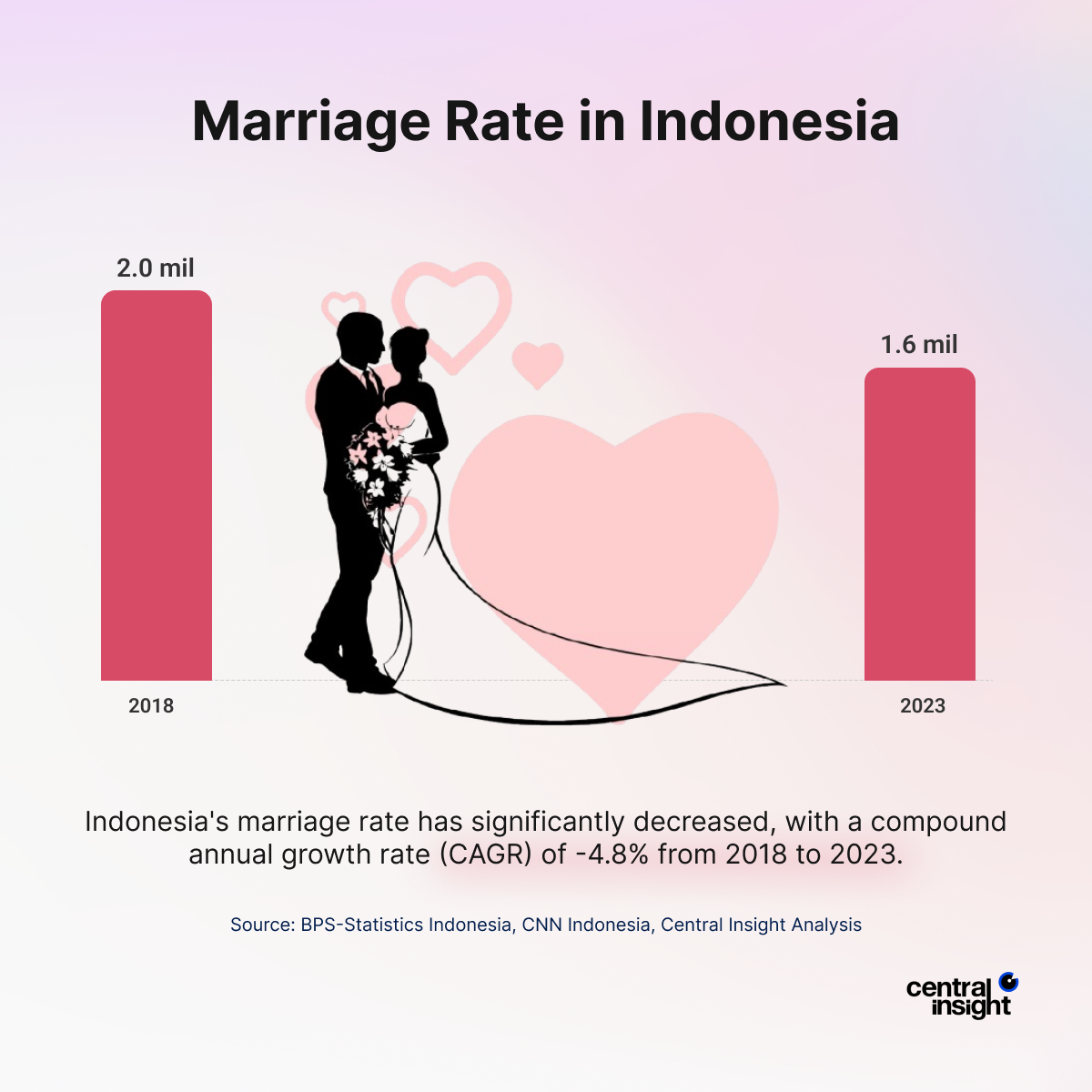Marriage rates in Indonesia have been steadily declining, with a compound annual growth rate (CAGR) of -4.8% from 2018 to 2023. The number of marriages dropped from 2,016,171 in 2018 to just 1,577,255 in 2023, a decline of 438,916 marriages. But what is causing this shift?

Changing Perspectives on Indonesia’s Marriage Rate Traditional Norms
Several factors contribute to this trend. Economic challenges, such as unstable employment and rising living costs, make many hesitant to commit to marriage. Additionally, changing social values emphasize personal fulfillment and independence over traditional expectations.
The most dramatic drop in Indonesia’s marriage rates occurred between 2019 and 2020. The COVID-19 pandemic disrupted nearly every aspect of daily life, including weddings, which were postponed or canceled due to mobility restrictions, economic hardship, and health concerns.
Even after restrictions were lifted, marriage rates did not rebound to pre-pandemic levels. The economic struggles that started during the pandemic continued, and people adapted to a new way of living, where marriage was no longer an urgent milestone.
Women’s increasing access to education and career opportunities is another major factor. Many now prioritize professional growth before settling down, leading to delays or rejections of marriage altogether. Moreover, middle-class parents are focusing on their children’s education and financial stability, further influencing younger generations to wait before getting married.
With modernization reshaping traditional norms, marriage is no longer seen as the only path to a fulfilling life. As individualism and alternative lifestyles gain popularity, Indonesia’s marriage rates may continue to decline in the coming years.








